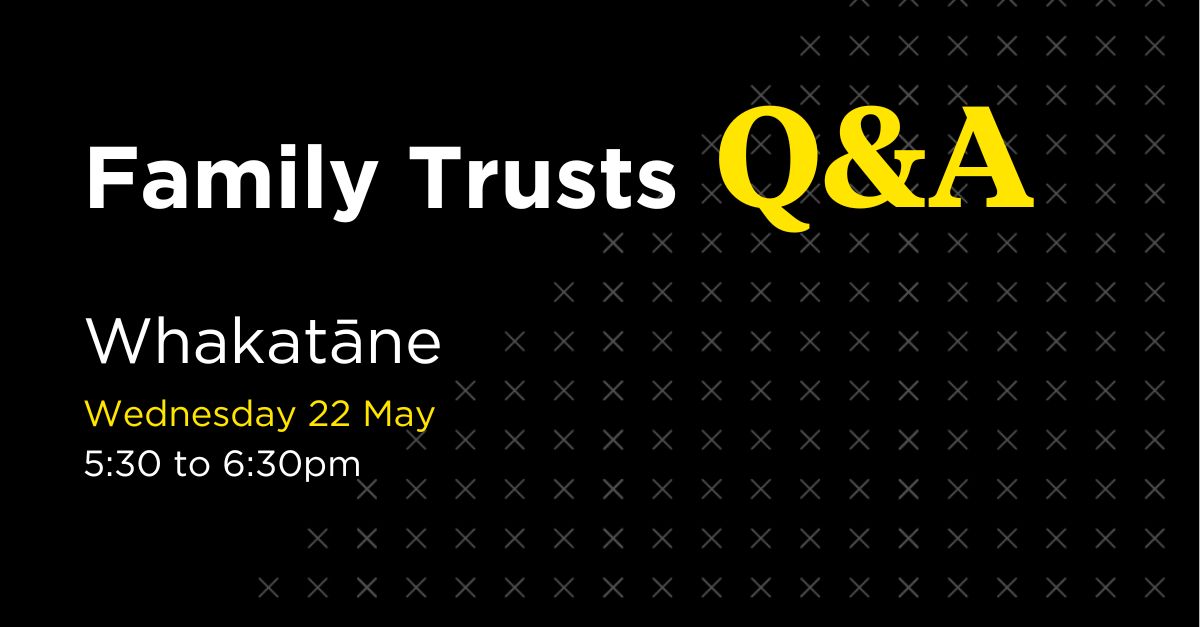First Mortgage Trust – Securing Residential Care Subsidies
Are you approaching, or have you already reached or even surpassed 65 years and are you thinking you may require long-term residential care? Did you know you could be entitled to a residential care subsidy? Whether you are or not will depend (among other considerations) on the value of your personal assets, and we have some tips and tricks for the young (at heart) players.
Requirement For Residential Care Subsidy
Work and Income carry out a “financial means assessment” to decide whether or not you are in a position to pay for your care yourself.
In a nutshell, you may qualify for residential care subsidy if you are either:
- A single person in care, or you and your partner are in care, and have less than $219,889 in assets, including the value of your home and car; or
- A person in care who has a partner not in care, and have combined total assets that value up to less than:
- $219,889, including the value of your home and car, or
- $120,416, not including the value of your home (if your partner is still living in it) and car.
Note these thresholds are reassessed annually on 1 July based on the Consumer Price Index. This makes it extremely difficult to forecast future thresholds.
Tip: “assets” do not include household furniture and personal belongings such as clothing and jewellery.
Now for the trick– you can reduce the value of your assets.
Reducing the Value of Your Assets
Gifting
You can gift assets to, say, family, friends, charity – but only up to a point.
The current policy allows gifting to be made up to:
- $6,000 in total per year in the five years prior to going into residential care; and
- $27,000 in total per year outside of that five year period.
Tip: gifts above these limits may be classed “deprivation of assets” and will be included or added back when assessing your entitlement for a residential care subsidy.
Double Tip (for couples): the gifting limits apply between you and your partner, even if only one of you is going into care. So, if you both individually gift $27,000, the first gift will still be considered a gift from you both and the second gift will be considered an asset.
Setting up a Trust
Your Lawyer can set up a Trust for you to transfer and gift your assets in to. Once in Trust, these are generally not taken into account when assessing your personal assets.
This is particularly beneficial when it comes to appreciating assets, such as your home. While in your own name, any increase in value will increase your personal assets. By transferring appreciating assets to your Trust, the value of those assets become locked in from the time of transfer. Any continued increase in value accrues for the benefit of your Trust.
Tip: although gift duty no longer applies (meaning you can gift large amounts to your Trust in a single gift), you still need to take care not to exceed the gifting limit of $27,000 per year (or $13,500 each for couples).
Setting up a Funeral Fund
You can arrange a prepaid funeral expense of up to $10,000 each. These funds need to be held in a recognised funeral plan.
Tip: you may be tempted instead to lend funds to, say, your children to reduce the impact on your assets. Beware – Work and Income will see the loan as an asset and include it when assessing your entitlement for a residential care subsidy.
Which is the Best Option?
The best approach is to get legal advice tailored to your (and your partner’s) circumstances and goals. The sooner the better as the limits on gifting may mean that you require a long-term plan.
Tip: if you think you may be needing care within the next five years, you should consider reducing any gifting to $6,000 per year ($3,000 each for a couple) in anticipation.
Other Considerations
If you do meet the asset threshold, Work and Income will also complete an income assessment. Any income that you, or your partner, are able to receive will be used to determine the amount you contribute towards the cost of your care.
Tip: Income includes NZ superannuation, veteran’s pension or any other benefit, contributions from relatives, investments and income or payments from a trust or estate.



